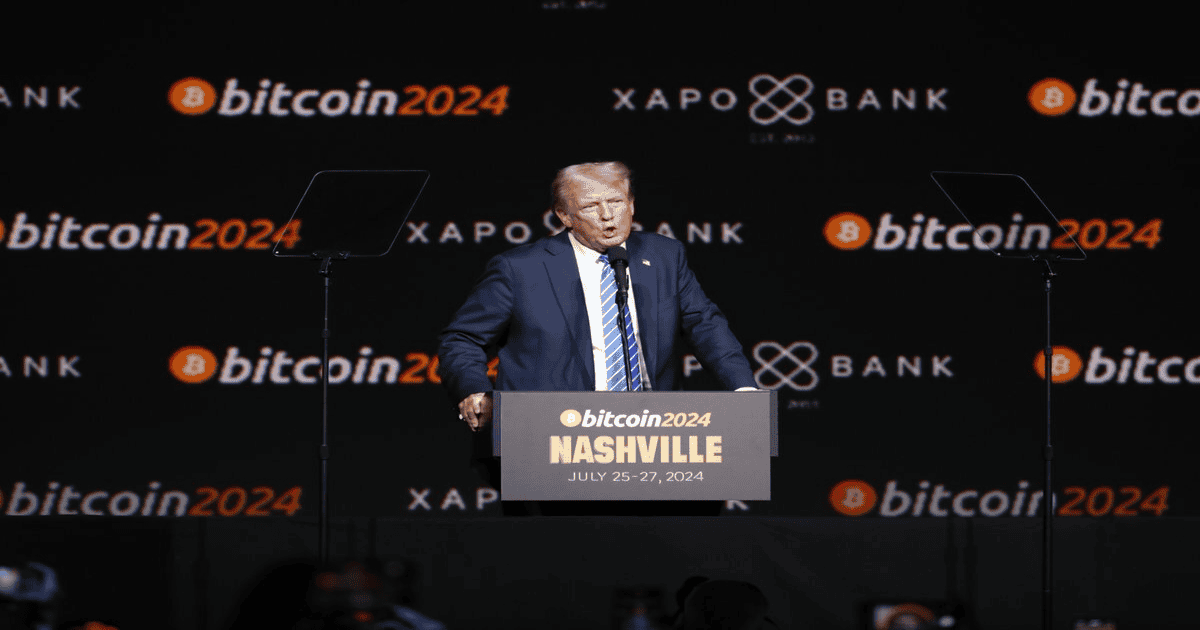Groundbreaking: US Government Stamps Historic GDP Data onto Bitcoin Blockchain!

The U.S. government has initiated a significant shift in its economic reporting by officially publishing gross domestic product (GDP) data on public blockchains. This groundbreaking move, announced by the Commerce Department, integrates blockchain technology into the core of America’s economic transparency. The data is now accessible on nine distinct networks, including prominent platforms such as Bitcoin, Ethereum, and Solana, marking a pivotal moment for the adoption of distributed ledger technology in federal operations.
Commerce officials have clarified that this blockchain rollout serves as an additional distribution channel rather than a replacement for traditional economic data releases. However, the initiative carries profound symbolic weight, effectively granting the U.S. government's endorsement to a technology that was once met with considerable skepticism in Washington. Mike Cahill, CEO of Douro Labs, confirmed his collaboration with the Commerce Department on this project, stating, “With today’s announcement we are now in a world where government data lives on blockchains, and market participants can participate in real time.”
The blockchain initiative primarily involves posting cryptographic hashes of GDP data. These digital fingerprints are crucial for verifying the information's integrity and ensuring its tamper-proof nature. While the initial scope is limited, the Trump administration, led by President Donald Trump, intends to broaden the program's reach. Commerce Secretary Howard Lutnick spearheaded the project, reportedly telling President Trump that statistics would be issued via blockchain because he is the “crypto president.” Lutnick has also previously advocated for changes to GDP reporting, specifically by excluding the impact of government spending.
This policy represents a stark contrast to the previous administration's approach. Under former President Joe Biden, regulators maintained a cautious stance on cryptocurrency, often engaging in disputes with exchanges and implementing restrictions on digital assets. In sharp opposition, President Trump has swiftly moved to embed Bitcoin and other cryptocurrencies into government policy. Since taking office, his administration has established a U.S. Bitcoin reserve, accumulated holdings in various digital assets like Ether and Solana, enacted legislation regulating stablecoins, and appointed crypto-friendly regulators who subsequently ended enforcement actions against major platforms like Coinbase. Furthermore, the Trump family has expanded its presence in the digital asset sector, supporting ventures such as World Liberty Financial.
The burgeoning political influence of the crypto industry is undeniable, evidenced by significant financial contributions to political campaigns. Crypto firms have heavily donated to President Trump’s reelection campaign and contributed over $133 million to super PACs supporting pro-crypto candidates in 2024, according to OpenSecrets.
In facilitating this data publication, the Commerce Department has partnered with Chainlink, a prominent “oracle” provider. Chainlink's technology ensures that real-world data, such as GDP figures, can be securely and reliably published directly onto blockchain networks. Following this announcement, the price of Chainlink’s native LINK token surged by more than 6%. Chainlink views this collaboration as a “key milestone” for government adoption of blockchain technology, highlighting its existing partnerships with major entities like SWIFT, BNY Mellon, BlackRock, Visa, and Mastercard.
The U.S. economy recently demonstrated stronger-than-expected growth, with a 3.3% expansion in the second quarter and consumption rising by 1.6%. This marks the best quarter since Q3, 2023, following a revision from an earlier 3% estimate. While the data suggests a slowing yet continued growth trajectory, the Federal Reserve is still widely anticipated to implement interest rate cuts in the coming month.
The Commerce Department's initiative places it among other federal and state agencies exploring crypto technology. The Department of Homeland Security has considered blockchain for enhancing airport passenger screening, and California’s DMV has already digitized car titles using crypto solutions. As President Trump solidifies his image as the “crypto president,” the integration of blockchain for GDP distribution signifies a profound evolution in U.S. economic policy, further cementing Bitcoin’s status as a formidable political and financial force in Washington.
You may also like...
Boxing World Mourns Joe Bugner: Legend Dies at 75

The boxing world mourns the passing of Joe Bugner at 75, a legendary British-Australian heavyweight champion known for f...
Super Falcons Seize 10th WAFCON Title, Oshoala Faces Retirement Rumours
)
The Super Falcons of Nigeria clinched their record-extending 10th Women's Africa Cup of Nations title with a dramatic 3-...
Hilarious Heartbreak: Benedict Cumberbatch & Olivia Colman's 'The Roses' Takes On Divorce

A cinematic triptych highlights recent film releases, from Jay Roach's dark comedy "The Roses" re-evaluating modern marr...
Pure Gold! Liam Neeson & Pamela Anderson's Chemistry Ignites 'Naked Gun' Remake

Recent film releases offer a diverse cinematic experience, featuring Liam Neeson's surprising comedic turn in 'The Naked...
Cardi B Unfiltered: Superstar Dishes on New Album, Family & 'Bad Karma' in Explosive Billboard Feature!

Seven years after her debut, Cardi B is ready to launch her highly anticipated second album, "Am I the Drama?" The artis...
African Music Crowns Its Best: AFRIMA 2025 Nominees Unleashed!

The All Africa Music Awards (AFRIMA) 2025 has unveiled a record-breaking list of 343 nominees across 40 categories, foll...
Chrisley Family's Tumultuous Return: Post-Prison Confessions & New Reality Show Drama Unfold

The Chrisley family returns to television with their new Lifetime series, "The Chrisleys: Back to Reality," premiering S...
Bianca Censori's Daring Public Looks Spark Frenzy After Kanye West Revelation

My baby she ran away / But first she tried to get me committed / Not going to the hospital ’cause I am not sick I just d...
